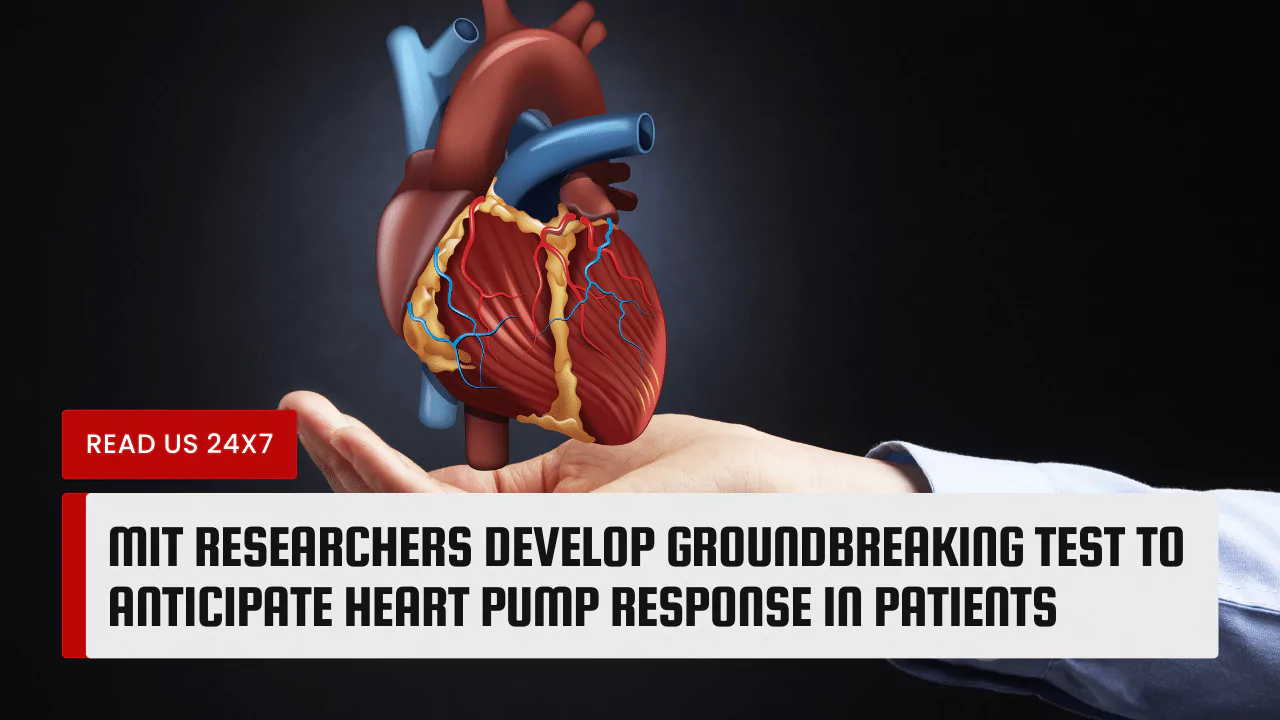Cardiogenic shock, a life-threatening condition resulting from severe heart attacks, affects around 50,000 individuals annually in the United States alone. Many of these patients rely on mechanical pumps to assist their hearts in pumping blood until they recover sufficiently. However, nearly half of these patients face a potential complication: an imbalance between the left and right ventricles of the heart, which can pose serious risks.
MIT researchers have made significant strides in understanding why this imbalance occurs and have developed a groundbreaking test to predict whether a patient will experience dysfunction when using ventricular assist devices (VADs). This innovative test could revolutionize how doctors assess and treat patients with heart failure.
Predicting Patient Response to Mechanical Pumps
Importance of Predicting Response
The ability to predict how patients will respond to mechanical pumps is crucial for ensuring optimal outcomes and reducing risks associated with treatment. Currently, there are limited metrics available to help clinicians determine which patients may experience complications from VADs. As a result, device selection and treatment decisions are often based on empirical evidence and clinical experience.
The New Test and How It Works
MIT’s research team, led by Kimberly Lamberti, developed a dynamic test that evaluates the adaptability of the pulmonary vascular system—the network of blood vessels between the heart and lungs—to changes in blood volume induced by VADs. By measuring the system’s compliance and resistance, doctors can assess how well a patient’s right ventricle will respond to left ventricle assistance.
In the study, researchers implanted VADs in an animal model of heart failure and analyzed various metrics of heart function as the pumping speed of the device was adjusted. They found that the adaptability of the pulmonary vascular system was a key determinant of how the right ventricle responded to VAD implantation.
Study Abstract and Findings
The research, published in Science Translational Medicine, provides valuable insights into the mechanisms underlying heart pump dysfunction. By elucidating the factors contributing to ventricular imbalance, the study offers clinicians straightforward guidelines for optimizing the use of mechanical devices in treating patients with cardiogenic shock.
Benefits of the New Test
Better Outcomes for Patients
The development of this predictive test offers hope for improving patient outcomes and reducing the incidence of complications associated with mechanical pumps. By identifying patients at higher risk of dysfunction, doctors can tailor treatment strategies to mitigate potential risks and optimize therapeutic outcomes.
Improved Understanding of Heart Pumps
MIT’s research enhances our understanding of how mechanical devices interact with the native physiology of the heart. By elucidating the mechanisms underlying ventricular imbalance, researchers aim to improve the utility and effectiveness of VADs, ultimately enhancing patient care and treatment outcomes.
Implementation and Future Implications
Potential for Personalized Treatment
The implementation of MIT’s predictive test has the potential to revolutionize the treatment of heart failure patients. By providing clinicians with valuable insights into patient response to mechanical pumps, the test enables personalized treatment strategies tailored to individual patient needs.
Collaborations with Other Medical Advancements
Moving forward, MIT researchers plan to collaborate with manufacturers and medical professionals to further evaluate the test’s clinical utility. By integrating this predictive tool into clinical practice, doctors can make more informed decisions regarding device selection and treatment approaches, ultimately improving patient care and outcomes.
In conclusion, MIT’s groundbreaking research offers a promising avenue for predicting patient response to mechanical pumps and mitigating the risks associated with ventricular imbalance. By leveraging innovative technologies and interdisciplinary collaborations, researchers are poised to transform the landscape of heart failure treatment, ushering in a new era of personalized medicine.


